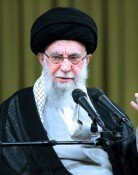S. Korea’s national competitiveness fell in 3 years
S. Korea’s national competitiveness fell in 3 years
Posted June. 16, 2022 07:53,
Updated June. 16, 2022 07:53
South Korea’s national competitiveness ranking fell four places to the 27th position from a year ago. It is the result of Switzerland’s International Institute for Management Development’s analysis of 63 countries. South Korea had stayed in the 23rd position in 2020 and 2021 when its economy was less affected by COVID-19 compared to other advanced countries. This is the first time its ranking fell in three years, which indicates that its economic foundation has weakened against negative factors happening simultaneously, such as the inflation of crude oil and raw materials and economic recession from the U.S.’s tightening policy.
In particular, the South Korean government’s ranking of efficiency fell for two consecutive years. Among the evaluation criteria, the government fell six places and 15 places in the financial aspect and how well pensions are accumulated, respectively. The drop in the financial ranking is due to the fact that the country’s debt-to-GDP ratio rose from 43.8 percent in 2020 to 47.3 percent in 2021. The drop in the matter of pensions is because there has been no progress in transforming national pensions, which are destined to be depleted by the mid-2050s. The country’s rankings in policy transparency and how well policies adapt to economic changes also worsened. This means that the government has held back national competitiveness. Large South Korean companies’ labor productivity ranking also fell five places due to a sharp rise in wages.
What’s concerning is that the national competitiveness and the government’s efficiency are unlikely to be improved next year. Given two rounds of revised supplementary budgets in May this year on top of the largest main budget in history, the national debt ratio is expected to reach 50 percent. While the Yoon Suk-yeol administration pledged to put forward new fiscal rules to manage national debts by law during the first year in office, it has not done so yet, which means it is unlikely to be passed by the National Assembly until the end of this year.
National pension transformation, which was proposed by President Yoon during his administrative policy speech at the National Assembly as one of the Top 3 transformation initiatives of the new administration, has not seen much progress either. There has been no detailed schedule for the transformation and it even has not been decided whether to place the public pension transformation committee directly under the president. The Minister of Health and Welfare of South Korea, in charge of the matter, has not been appointed yet due to the issues of a confirmation hearing.
As the United Nations Conference on Trade and Development categorized South Korea as an advanced country, not a developing country, South Korea has clearly joined the ranks of developed countries. However, only South Korea and Turkey do not have fiscal rules among the groups of advanced countries in the OECD. There is no advanced country neglecting the pension system, which will be completely depleted 30 years later. The speed of transformation should be accelerated before backward financial and pension systems and policies further damage national competitiveness.





![[단독]폴란드, 韓 해군 최초 잠수함 ‘장보고함’ 무상 양도 안받기로](https://dimg.donga.com/c/138/175/90/1/wps/NEWS/IMAGE/2026/02/27/133437397.1.jpg)

